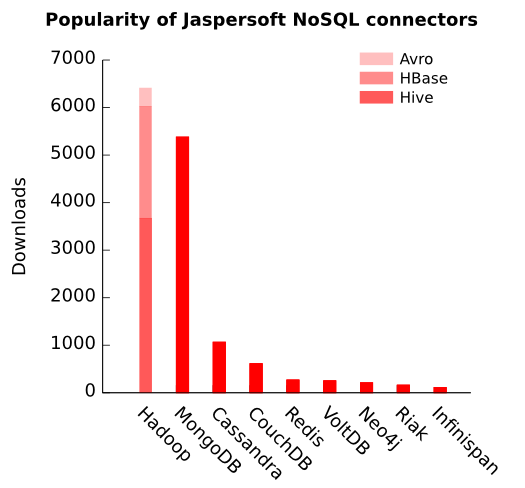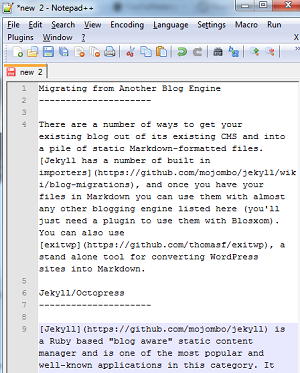Klint Finley
Latest from Klint Finley
NoSQL Company Basho Unveils New Cloud Storage Software
Today Basho, the sponsor company of the open source NoSQL database Riak, announced Riak CS, a new software platform for building multitenant cloud storage systems. Riak CS can be used to build public clouds, on-premise private clouds or to build the foundation for Web applications. Riak CS is a proprietary system built on the open ...
Integration Data Sheds Light on NoSQL Database Adoption
Trying to determine what new technologies have traction – and therefore what job skills to train for – can be tricky business. Practicioner-centric analyst firm RedMonk is constantly analyzing various data sources to determine which tools are most popular. For example, I looked at their analysis of Puppet and Chef’s relative popularity earlier this month. ...
DevOps Vendor Opscode Raises Even More Money: $19.5 Million Series C
Today, Opscode, the company that sponsors the configuration automation tool Chef, announced that it has closed $19.5 million in series C funding lead by Ignition Partners with follow-on investment from Battery Ventures and Draper Fisher Jurvetson. Ignition Partners’ John Connors has joined the Opscode board. Opscode, which was one of our open source startups to watch ...
Obtvse vs. Svbtle: New Markdown Based Minimal Blogging Engines, Complete with Controversy
Earlier this week I posted a round-up of blog engines that generate static HTML. Most of these enable bloggers to write a post in the Markdown markup language using a plain text editor. These engines typically have no admin interface – bloggers push the files to a server using Git, Dropbox, Rsync or other methods. ...
3 Tutorials on Using R with Hadoop
Jeffrey Breen of Atmosphere Research Group presented at tk how to use Apache Hadoop with the statistical programming language R using RHadoop. Hadoop has become practically synonymous with big data and R has become the language of choice for data scientists so it’s natural to want to use the two together. Breen has made his ...
Is DevOps Destroying Jobs?
The number of IT jobs at large corporations is declining according to research conducted by The Hackett Group and reported on by Computerworld. Hackett blames offshoring, but what about cloud computing and automation? Hackett thinks the downsizing will stall within 10 years as company run out of jobs that can be offshored. But that leaves ...
Datastax Integrates Solr and More in Latest Release
Datastax annuonced the new version of its commercial Apache Cassandra distribution today. The biggest new feature in DataStax Enterprise 2.0 is the integration of Solr on top of the Cassandra stack. Since Cloudant announced Cloudant Search for BigCouch and Basho rolled out Riak Search, enterprise search is becoming a must have for distributed NoSQL databases. ...
Amazon Goes Further Down PaaS Path with PHP and Git for Elastic Beanstalk
Today Amazon Web Services announced support for PHP on its Elastic Beanstalk platform, and for Git based deployments. AWS isn’t positioning Elastic Beanstalk as a PaaS, but its description sure makes it sound like one: “AWS Elastic Beanstalk makes it easy for you to quickly deploy and manage applications in the AWS cloud. You simply ...
Build Beautiful Real-Time Dashboards with Graphene
Graphene is a dashboard building framework based on D3.js, Backbone.js and Graphite. Although most monitoring tools have their own visualization and dashboarding tools, sometimes you need to build your own. And Graphene looks like it will be useful for building very pretty dashboards. Graphene’s own website has an example of what these can look like: ...
5 Minimalist Static Blog Generators to Check Out
One of the reasons that the Slashdot effect (which perhaps we should now call the “Hacker News effect”) is such a problem is that WordPress and many other blogging engines dynamically generate content. Caching plugins can help this, but there’s nothing quite as fast, or as secure, as serving a site in plain static HTML. ...

















